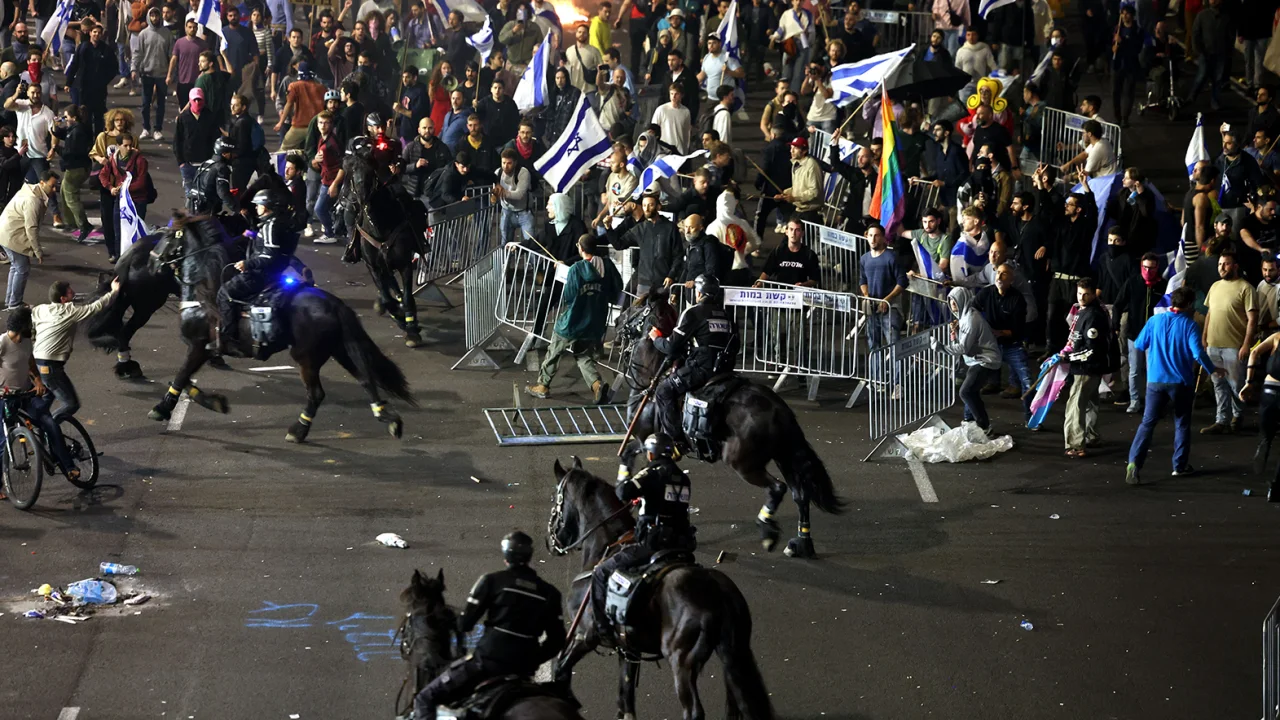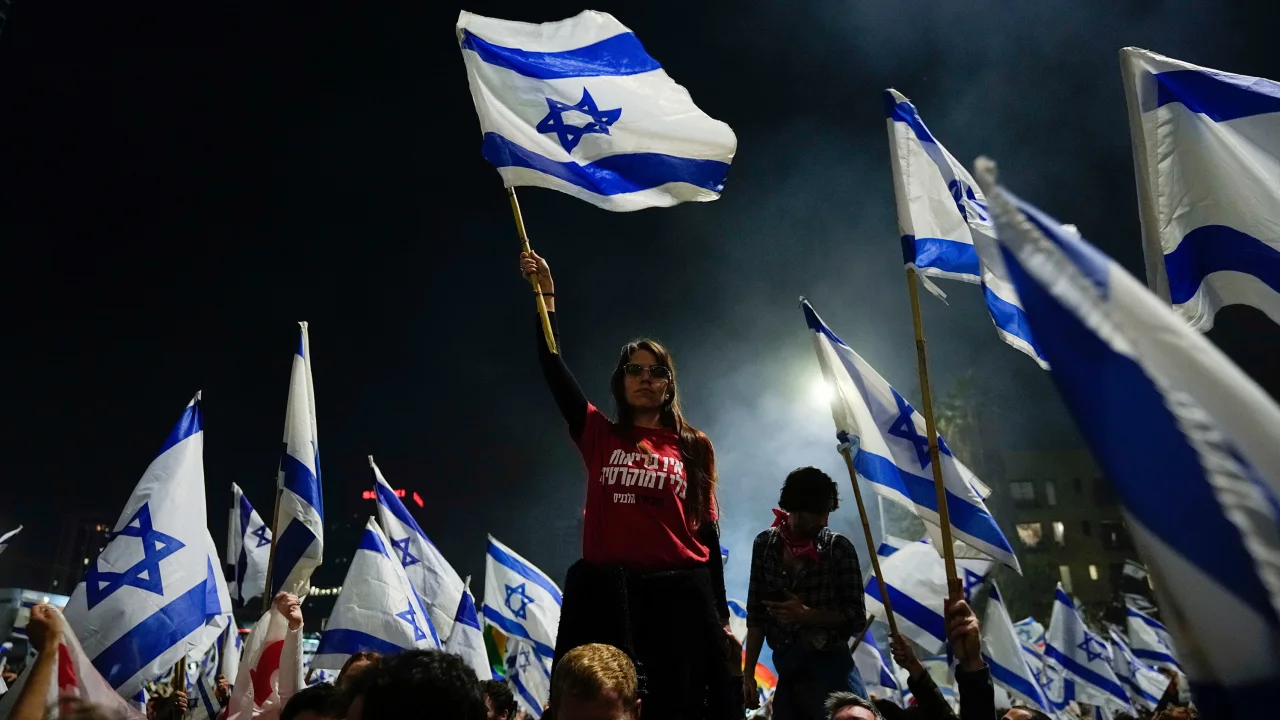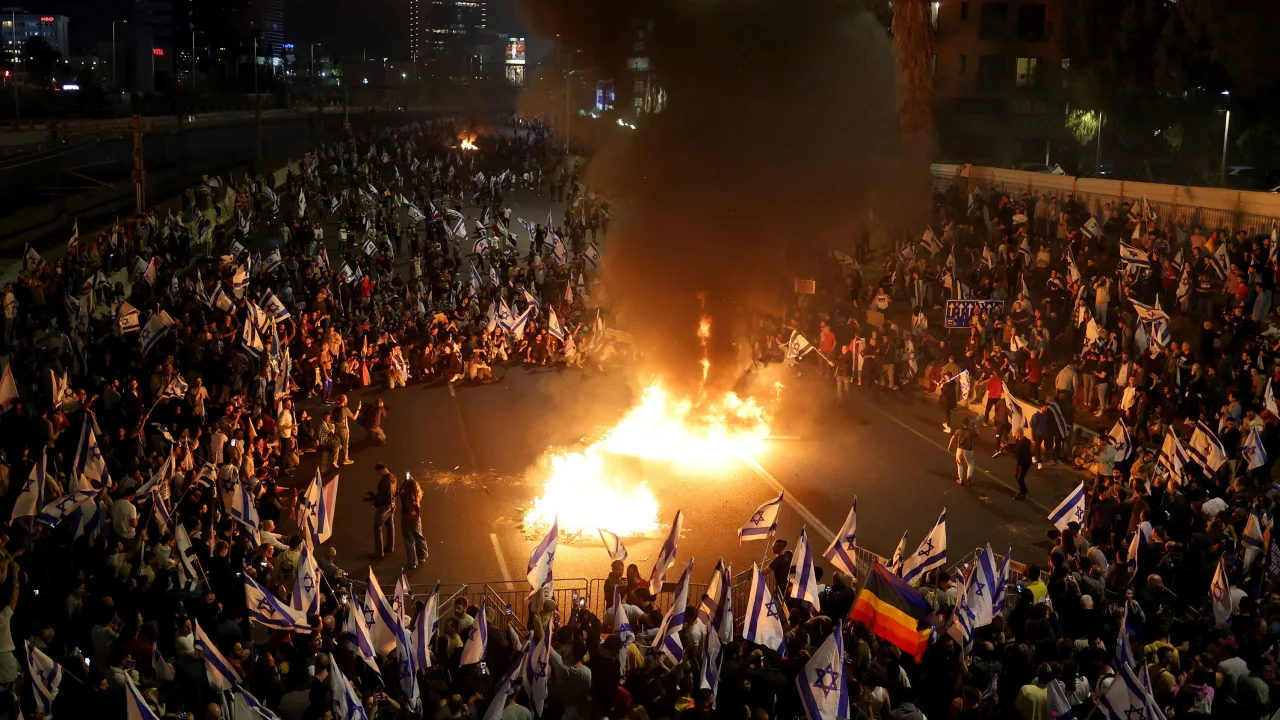With hundreds of thousands of demonstrators taking to the streets, Prime Minister Benjamin Netanyahu came under increasing pressure on Monday to abandon his government’s plan to implement significant reforms to the Israeli judiciary. Since Netanyahu’s coalition of hard-right and religious parties came to power late last year, the court’s makeover proposal has provoked unprecedented popular outrage and alarmed Israel’s Western friends.
 Image Source: Reuters
Image Source: Reuters
WHAT IS THE GOVERNMENT’S PROBLEM WITH THE JUDICIARY?
Opponents of the Supreme Court, including many members of the coalition government, claim that the court is left-leaning and elitist, has grown too involved in politics, and frequently puts the rights of minorities before those of the nation.
New measures in Israel would limit Supreme Court’s power to rule against legislature and executive
WHAT DOES THE COALITION DESIRE?
The administration has been working to enact measures that would give coalition lawmakers more control over nominating judges while restricting the Supreme Court’s ability to rule against the legislature and the executive. Politicians and judges who serve on the body that chooses judges must currently agree on appointments. The current plan would alter that and give coalition administrations absolute power. Netanyahu has stated that these reforms are intended to balance and diversify the Supreme Court bench. Nevertheless, he is officially prohibited from participating in the initiative as he is now facing corruption allegations, which he denies. Additionally, he has claimed that the media is attempting to overthrow his government by distorting the plan and fueling the protest fires.
WHAT IS UP WITH ALL THE ISRAELI PROTESTANTS?

The democratic “checks and balances” in Israel are not very strong. It has just “fundamental laws” intended to help protect its democratic roots; it has no constitution. The administration has a 64–56-seat majority in the Knesset, which is a one-chamber legislature. Opponents claim that the reforms would have disastrous impacts on the economy and relations with Western partners, who have already expressed worry, as well as undermine the judiciary and give the government unchecked authority, undermining democratic rights and liberties.
A judiciary that is no longer regarded as impartial might deprive Israel of one of its principal lines of defence in any prospective international legal issues, such as any accusations of war crimes in its protracted confrontation with the Palestinians. Yoav Gallant, Israel’s defense minister, demanded on Saturday that the government withdraw the law because thousands of army reservists are protesting it and refusing to be called up for training, endangering Israel’s security.
WHERE ELSE ARE OTHER FACTORS ACTIVE?
Opponents worry that Netanyahu will use the reorganisation of the judiciary to get his fraud trial overturned or sway any appeals before the Supreme Court. He has said he doesn’t intend to do that. Moreover, the opposition claims that Netanyahu’s nationalist supporters want to undermine the Supreme Court in order to strengthen Israeli settlements in the occupied West Bank, where the Palestinians desire a state. Jewish parties in the coalition that are ultra-Orthodox want to approve a bill exempting their group from serving in the conscript military, but they are concerned that if the supreme court‘s authority is not curbed, the measure might be overturned. Regarding military duty, Israel’s ultra-Orthodox population has long been harassed by the court.
WHAT HAPPENS NOW?

The administration had set a deadline of April 2 for final approval of the modifications to the judicial appointment process before legislators break for the spring. Additional amendments have been postponed until the Knesset reconvenes on April 30, some of which were adopted at the first of the three readings necessary for ratification. But when his decision to fire his defence minister, who advocated postponing the changes, sparked a significant public protest, Netanyahu was largely expected to halt the legislation on Monday. Due to the largest labour union being on strike, other prominent members of his party also requested a break.













